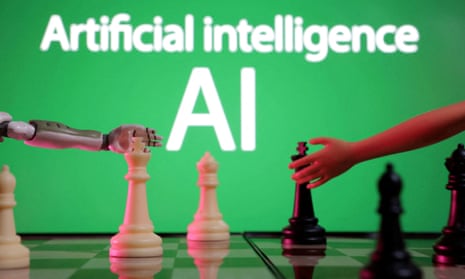Artificial intelligence cannot be legally named as an inventor to secure patent rights, the UK supreme court has ruled.
In a judgment on Wednesday, Britain’s highest court concluded that “an inventor must be a person” in order to apply for patents under the current law.
The ruling comes after the technologist Dr Stephen Thaler took his long-running dispute with the Intellectual Property Office (IPO) to the country’s top court over its rejection of his attempt to list an AI he created as the inventor for two patents.
The US-based developer claims the AI machine named DABUS autonomously created a food or drink container and a light beacon and that he is entitled to rights over its inventions. However, the IPO concluded in December 2019 that the expert was unable to officially register DABUS as the inventor in patent applications because it was not a person.
The decision was upheld by the high court and the court of appeal in July 2020 and July 2021. After a hearing in March, a panel of five supreme court justices have unanimously dismissed Thaler’s case.
The DABUS dispute centred on how applications are made under the Patents Act 1977 legislation, and the judges were not asked to rule on whether the AI actually created its inventions.
Lord Kitchin, with whom Lords Hodge, Hamblen, Leggatt and Richards agreed, said the IPO “was right to decide that DABUS is not and was not an inventor of any new product or process described in the patent applications”.
He continued: “It is not a person, let alone a natural person and it did not devise any relevant invention. Accordingly, it is not and never was an inventor for the purposes of … the 1977 act.”
The judge said the IPO was entitled to find that Thaler’s applications should be taken as “withdrawn” under patent rules because “he failed to identify any person or persons whom he believed to be the inventor or inventors of the inventions described in the applications”.
The supreme court also rejected Thaler’s argument that he was entitled to apply for patents for DABUS inventions on the basis that he was the AI’s owner.
Kitchin said DABUS was “a machine with no legal personality” and that Dr Thaler “has no independent right to obtain a patent in respect of any such technical advance”.
after newsletter promotion
Patents, which provide protective legal rights, are granted for inventions that must be new, inventive and capable of being made or used or a technical process or method of doing something, according to government guidance.
Thaler’s case reached the supreme court amid recent scrutiny of AI developments – such as OpenAI’s ChatGPT technology – including their potential impact on education, the spread of misinformation and the future jobs market.
His lawyers had argued at the March hearing that patent law did not “exclude” non-human inventors and contains no requirements over “the nature of the inventor”.
However, Stuart Baran, for the IPO, said in written arguments that patent law required “identifying the person or persons” believed to be an inventor.










